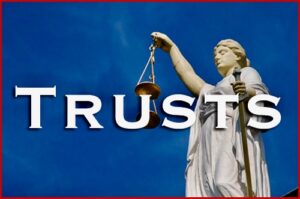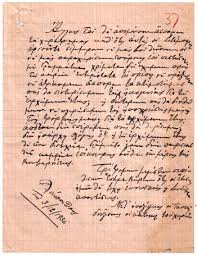
Trevor Todd and Jackson Todd have over 60 years experience in handling contested estate matters including undue influence.
Undue influence is an equitable doctrine used to protect persons from victimization at the hands of others. Equity will set aside transfers brought about by undue influence: Geffen v. Goodman Estate, [1991] 2 S.C.R. 353 at 368, 1991 CanLII 69.
In Stewart v. McLean, 2010 BCSC 64, Justice Punnett considered undue influence.
At para. 92, he noted that the presumption of undue influence arises for gratuitous transfers when a plaintiff establishes that the potential for influence exists or existed in the relationship. In Geffen at 377, Justice Wilson provided a definition of influence:
It seems to me rather that when one speaks of influence one is really referring to the ability of one person to dominate the will of another, whether through manipulation, coercion, or outright but subtle abuse of power…. To dominate the will of another simply means to exercise a persuasive influence over him or her. The ability to exercise such influence may arise from a relationship of trust or confidence but it may arise from other relationships as well.
Justice Punnett also referred to Longmuir v. Holland, 2000 BCCA 538, at para. 71, where Justice Southin defined undue influence as “influence which overbears the will of the person influenced so that in truth what she does is not his own mind.
To rebut the presumption of undue influence, the defendant must show that the donor gave the gift as a result of her own “full, free and informed thought:” Geffen at 379. A defendant could establish this by showing:
a) No actual influence was used in the particular transaction or the lack of opportunity to influence the donor (Geffen at 379; Longmuir at para. 121);
b) The donor had independent advice or the opportunity to obtain independent advice (Geffen at 379; Longmuir at para. 121);
c) The donor had the ability to resist any such influence (Calbick v. Warne, 2009 BCSC 1222 at para. 64);
d) The donor knew and appreciated what she was doing (Vout v. Hay, [1995] 2 S.C.R. 876 at para. 29); or
e) Undue delay in prosecuting the claim, acquiescence or confirmation by the deceased (Longmuir at para. 76).
Another relevant factor may be the magnitude of the benefit or disadvantage (Geffen at 379; Longmuir at para. 121).
Campbell Estate (Re), 2022 BCSC 2184 at paras. 213–217 court stated:
Undue influence will be presumed in certain relationships, such as doctor and patient, solicitor and client, and parent and child: Geffen at para. 28. The categories of relationships in which undue influence will be presumed are not fixed. Each case must be considered on its own facts to determine if a “special” relationship exists to support the presumption.
[216]
[42] What then must a plaintiff establish in order to trigger a presumption of undue influence? In my view, the inquiry should begin with an examination of the relationship between the parties. The first question to be addressed in all cases is whether the potential for domination inheres in the nature of the relationship itself. This test embraces those relationships which equity has already recognized as giving rise to the presumption, such as solicitor and client, parent and child, and guardian and ward, as well as other relationships of dependency which defy easy categorization.
[43] Having established the requisite type of relationship to support the presumption, the next phase of the inquiry involves an examination of the nature of the transaction. When dealing with commercial transactions, I believe that the plaintiff should be obliged to show, in addition to the required relationship between the parties, that the contract worked unfairness either in the sense that he or she was unduly disadvantaged by it or that the defendant was unduly benefited by it. From the court’s point of view this added requirement is justified when dealing with commercial transactions because, as already mentioned, a court of equity, even while tempering the harshness of the common law, must accord some degree of deference to the principle of freedom of contract and the inviolability of bargains. Moreover, it can be assumed in the vast majority of commercial transactions that parties act in pursuance of their own self-interest. The mere fact, therefore, that the plaintiff seems to be giving more than he is getting is insufficient to trigger the presumption.
[44] By way of contrast, in situations where consideration is not an issue, e.g., gifts and bequests, it seems to me quite inappropriate to put a plaintiff to the proof of undue disadvantage or benefit in the result. In these situations the concern of the court is that such acts of beneficence not be tainted. It is enough, therefore, to establish the presence of a dominant relationship.
[45] Once the plaintiff has established that the circumstances are such as to trigger the application of the presumption, i.e., that apart from the details of the particular impugned transaction the nature of the relationship between the plaintiff and defendant was such that the potential for influence existed, the onus moves to the defendant to rebut it. As Lord Evershed M.R. stated in Zamet v. Hyman, supra, at p. 938, the plaintiff must be shown to have entered into the transaction as a result of his own “full, free and informed thought”. Substantively, this may entail a showing that no actual influence was deployed in the particular transaction, that the plaintiff had independent advice, and so on. Additionally, I agree with those authors who suggest that the magnitude of the disadvantage or benefit is cogent evidence going to the issue of whether influence was exercised.
[217] McMaster Estate v. McMaster, 2021 BCSC 1100 provides a recent illustration of the application of these principles in this court. In that case, a mother had purchased a home and registered it in joint title with one of her sons. While the deceased’s will provided for her estate to be split evenly between her children, the transfer had already taken nearly all of the deceased’s assets out of her estate. The estate alleged that the son who owned the house with the mother held it pursuant to a resulting trust or as a result of undue influence. In this context, Justice MacDonald summarized the applicable legal principles as follows:
[47] Undue influence is an equitable doctrine to prevent individuals from being taken advantage of by others. It addresses abuses of trust, confidence, and power spanning a range of transactions, including gifts, bequests, and commercial dealings. Transactions induced by undue influence may be set aside.
[48] Vulnerability and dependency are the hallmarks of undue influence.
[49] In order to trigger a presumption of undue influence, the first question to address is whether the potential for domination inheres in the nature of the relationship. The second phase of the inquiry involves an examination of the nature of the transaction: Geffen v. Goodman Estate, [1991] 2 S.C.R. 353 at paras. 40-44.
[50] A relationship of dependency involving a potential for domination may arise among family members: Geffen. A gratuitous transfer from a parent to an adult child does not automatically create a presumption of undue influence. In Wood v. Porter, 2015 BCSC 2354, this Court found a relationship of dependency and domination did not exist between an independent, active, and competent mother and her son. To establish the presumption of undue influence, the plaintiff must establish the existence of a relationship of potential dominance between the parent and the adult child: Modonese at para. 111.
[51] The second phase of the inquiry involves an examination of the nature of the transaction.
[52] To rebut the presumption of undue influence, the defendant must establish that the transferor entered into the transaction of her own “full, free and informed thought”: Geffen at para. 45.
[53] The following factors may be considered when scrutinizing the transaction to determine if Doreen entered into the transaction of her own “full, free and informed thought”: (i) the lack of actual influence or opportunity to influence her; (ii) whether she received or had opportunity to obtain independent legal advice; (iii) her ability to resist any such influence; (iv) whether she knew and appreciated what she was doing; (v) whether there was undue delay in confirmation by Doreen; and (vi) the magnitude of the benefit or disadvantage: Cowper-Smith v. Morgan, 2016 BCCA 200 at para. 50, rev’d on other grounds, 2017 SCC 61; Stewart v. McLean, 2010 BCSC 64 at para. 97.
[Emphasis added.]




